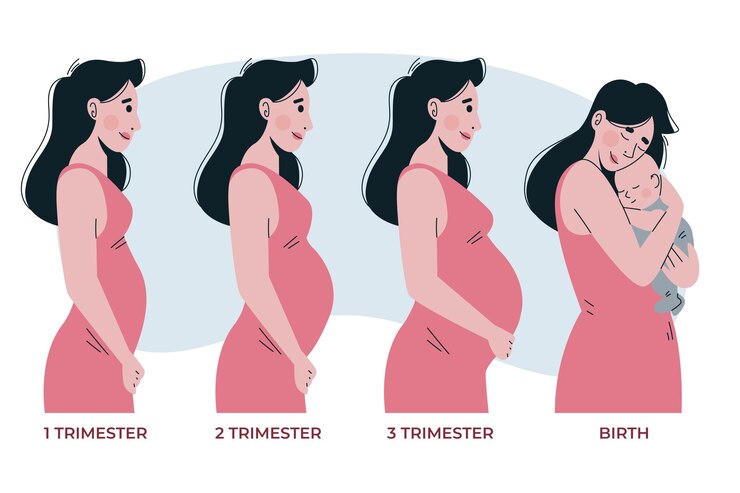Introduction: The postpartum period, also known as the “fourth trimester,” is a time of significant physical and emotional change for new mothers. Your body goes through a lot during pregnancy and childbirth, and recovery can take time. In this blog, we’ll discuss what to expect from your postpartum body and how to care for yourself during this crucial recovery phase. Understanding the Postpartum Body
1. Postpartum Bleeding and Recovery
After childbirth, you’ll experience postpartum bleeding, known as lochia. It’s your body’s way of shedding the uterine lining and excess blood from pregnancy.
- Lochia Duration: Postpartum bleeding can last anywhere from 2 to 6 weeks. Initially, it will be heavy and bright red, gradually becoming lighter over time.
- Caring for Your Body: Use heavy-duty sanitary pads during this time, and avoid using tampons, as they can introduce bacteria and cause infection.
2. Healing After a Vaginal Delivery or C-Section
Whether you delivered vaginally or via C-section, your body will need time to heal.
- Vaginal Birth Recovery: If you had a vaginal birth, you may experience soreness, especially if you had an episiotomy or tear. Ice packs, sitz baths, and over-the-counter pain relief can help.
- C-Section Recovery: For those who had a C-section, recovery involves caring for the incision site. Keep the area clean and dry, and avoid lifting heavy objects. It’s essential to follow your doctor’s advice regarding rest and activity.
3. Postpartum Hormonal Changes
Hormonal fluctuations after birth can impact your mood, energy levels, and even cause physical symptoms.
- Baby Blues vs. Postpartum Depression: Many new mothers experience the “baby blues,” which include mood swings, irritability, and sadness. However, if these feelings persist beyond two weeks, you may be dealing with postpartum depression, and it’s important to seek help.
- Physical Symptoms: Hormonal changes can also cause night sweats, hair loss, and breast engorgement. These symptoms are typically temporary but can be uncomfortable.
4. Rest and Nutrition During Recovery
Taking care of yourself is just as important as taking care of your newborn during the postpartum period.
- Getting Rest: Newborns require a lot of attention, but rest is crucial for healing. Try to nap when your baby naps and don’t hesitate to ask for help with household tasks.
- Nourishing Your Body: Eating a balanced diet rich in nutrients can support your recovery. Focus on foods that provide protein, fiber, and healthy fats to boost your energy and promote healing.
Conclusion
The postpartum period is a time of immense change and recovery for new mothers. By understanding what to expect and caring for your body through rest, proper nutrition, and emotional support, you’ll be better equipped to handle the challenges of postpartum recovery.
Understanding the Postpartum Body


3 thoughts on “Understanding the Postpartum Body: What to Expect After Birth”